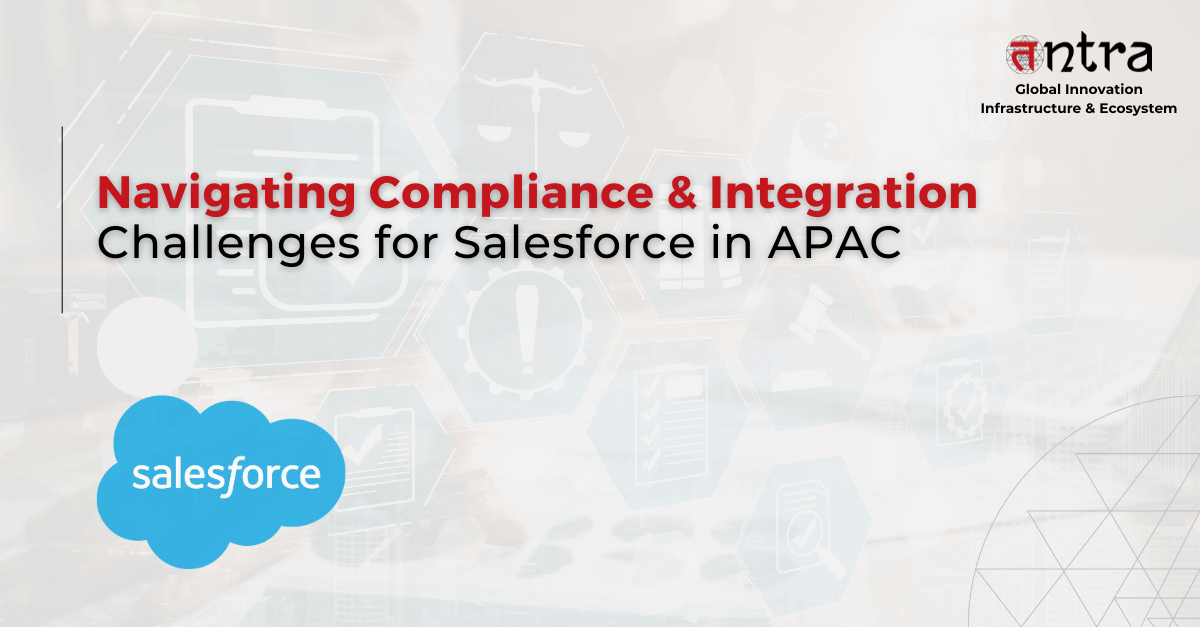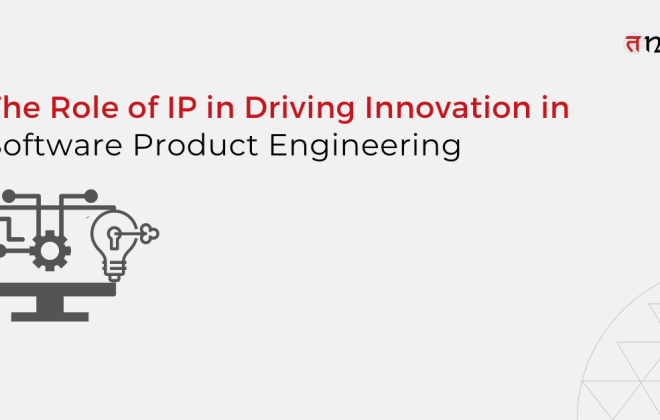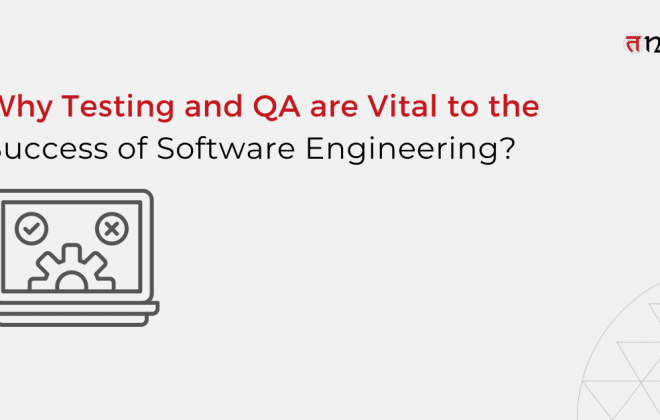
Navigating Compliance & Integration Challenges for Salesforce in APAC
Table of Contents
ToggleNavigating Compliance and Integration Challenges for Salesforce in APAC with diverse local regulations and seamless system integration requires in-depth knowledge about the region’s policies. This blog is centered on key compliance laws, cross-border data requirements, and best practices for integrating Salesforce across the regions of APAC. Learn how businesses can overcome hurdles and thrive amidst a complex regulatory landscape. Continue reading to learn more.
A leading company decided to expand Salesforce CRM implementation to other countries in the Asia-Pacific region. They had already gained success in North America and Europe, but soon found out that integrating Salesforce with local systems, and complying with regional regulations was much more complex in the Asia-Pacific region.
The first problem for the company was the very diverse and fragmented regulatory landscape in the region. Each country has its laws, which mandate data privacy and customer information, cross-border data flow, where countries are: Japan, India, and China. For example, in Japan, the Act on the Protection of Personal Information mandates keeping the personal data within the territory of the country. China’s Cybersecurity Law obliges business organizations to ensure that data related to Chinese citizens is kept within mainland China. This meant that the company’s current data storage practices, which are centralized in North America, would not comply with the local laws in many APAC countries.
Another key area of concern was the integration between Salesforce consulting services and existing local enterprise systems. APAC businesses tend to be more evolved with their tech stack and customized as compared to their non-APAC peers. Whereas many still depend on legacy systems that do not leverage integration with the new-age, cloud-based platforms like Salesforce, for instance. For ERP systems also developed locally in India, the integration challenges for Salesforce in APAC are many.. Therefore, proper data migration strategies, custom middleware, and localized support became critical to the successful implementation of Salesforce.
However, following long months of intense planning, partnerships with locals, and technology upgrades, the company was able to navigate the compliance and integration challenges to ensure its Salesforce solutions implementation was full-function, compliant, and scalable in the diverse APAC region. The success story above underscores the need for understanding both the compliance and integration challenges in any move to expand Salesforce or any CRM system into the APAC market.
The Compliance Landscape in APAC: A Snapshot
With financial crime compliance expenditures of over $20.4 billion and $17.8 billion respectively, China and Japan bear the biggest burden. A closer look at the variables affecting these costs shows that labor (41%) and technology (32%) have a major influence in APAC.
According to financial institutions polled in APAC, 24% said that their top regulatory challenge was data protection and governance.
In 2023, the governance, risk, and compliance platform market in the Asia Pacific region was valued at US$8.3 billion. According to IMARC Group’s forecast, the market would increase at a compound annual growth rate (CAGR) of 10.74% from 2024 to 2032, reaching US$ 21.5 billion.
Compliance and Integration Best Practices for Salesforce in APAC
While implementing salesforce financial services cloud solutions in the APAC region, companies face numerous compliance and technical integration-related challenges. Since regional landscapes often require companies to adjust their strategies to succeed, this calls for customization. Here are critical considerations and Salesforce integration best practices associated with compliance and integration issues while implementing Salesforce in APAC:
1. Understand Local Data Protection Laws
- APAC is home to some of the strictest data protection laws in the world. Toward that end, firms must be extra careful about data localization requirements in countries like China and India. Organizations dealing in more than one country should ensure that storage and processing of data are aligned to the protection regulations followed in that local nation; these may be GDPR in Europe or APPI in Japan.
- Use Salesforce Shield or equivalent solutions for Salesforce compliance in APAC to manage data encryption, auditing, and event monitoring to fulfill local data security requirements.
- Engage with local lawyers and seek their advice to understand the local laws better and avoid being slapped with fines or litigation.
2. Cross-Border Data Compliance
- APAC also faces data sovereignty, as many countries now restrict the transfer of cross-border data. The data collected from customers should be in line with local laws.
- Data Residency is a feature provided by Salesforce integration consulting that allows customers to store data in certain geographic regions. This capability can support an organization in meeting the legal obligation of data localisation in specific countries. It is important to know where data is going to be stored, how it’s going to be transferred and make the right choice for cloud regions based on what will suit your business needs.
3. Invest in Localized Integration Solutions
- In the APAC market, huge barriers to integrated Salesforce software product engineering solutions with an existing enterprise system, like ERP or financial management platforms, relate to ensuring localized software solutions and middleware. Businesses should:
- Engage local integration experts who are well aware of what is required in the APAC market.
- Customize the Salesforce implementation to fit local business needs-that could mean integrating with a local e-commerce platform or legacy systems.
- Use APIs and connectors providing flexible integrations with local systems.
4. Tap into the Ecosystem of Partners
- Salesforce has a deep and extensive network of partners in the APAC region who can help organizations in navigating local challenges. Ranging from legal consultants to experts in integration, these partners are also going to be your guides in ensuring that you remain compliant and hence successful in integration.
- Partner with Salesforce technology consulting solutions who are compliance and data protection experts within the APAC region. There are APAC-specific applications on the AppExchange at Salesforce, such as local tax regulation management solutions or regional payment gateways integration.
5. Ongoing Monitoring and Updates
- The regulatory environment in APAC continues to evolve over time, and laws on data privacy and security may change. Organizations should:
- Update Salesforce configurations periodically to ensure these changes are in place in light of changing local regulations.
- Utilize the Salesforce Automated Compliance Management tools to track modifications and conduct business in a manner that is compliant.
- Remain updated on regional regulatory changes by subscribing to newsletters or seeking guidance from compliance advisory firms who specialize in APAC regions.
Final Thoughts
However, the major implementation challenges faced by companies in APAC with respect to deploying Salesforce digital transformation services are somewhat diverse, mainly to do with compliance and integration. Awareness of local regulations, appropriate technology investments, and investment in expertise combined with proactive approaches toward compliance will be a success in helping companies to hurdle these challenges into successful execution and unlocking the full potential of Salesforce in APAC.
Addressing compliance and integration issues head-on is not only a legal necessity but also a competitive advantage in today’s data-driven business environment. Tntra, a leading software product engineering company, has Salesforce experts who can help you integrate Salesforce while following all the compliance and regulatory policies for smoother operations.
Schedule a call today!





